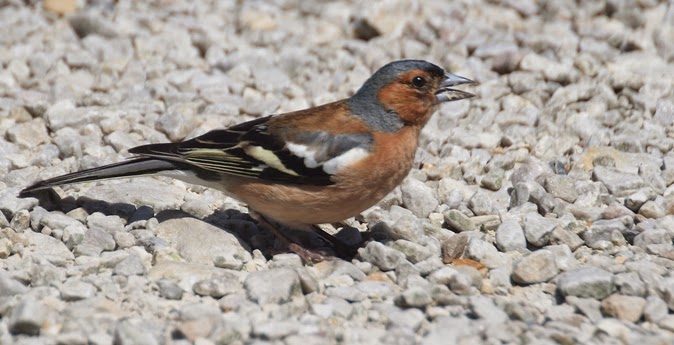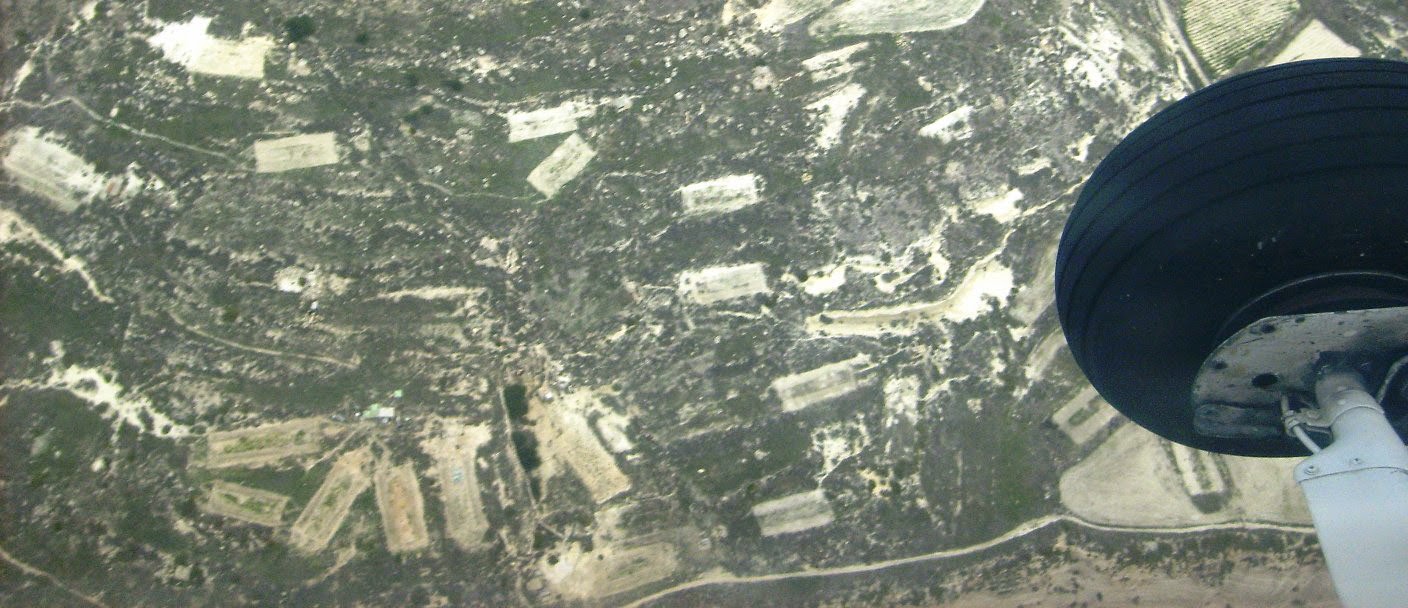It’s still dark when we start our early morning shift, which will take us to the cliffs in the south of Malta
The guy in the other car is in his early sixties. He stops the car and says something in Maltese. There is no trace of aggression in his voice, and I respond politely – Sorry sir, I don’t speak Maltese.
Well, there is no way we could deny that. None of us are Maltese, we are out in the countryside road, and it’s not even morning yet. It’s either that, or we are the worst-organised tourists in the world. Yes.
“Ah, but I’m not a hunter. I’m a trapper!”
This is how the confessions of Trapper Joe start. His English is a bit broken, and he doesn’t know most of the English names for the birds he traps. He is, however, eager to tell his story, to make us understand that there is nothing wrong with what he does, and keen to defend a practice that defines him culturally and, I suspect, also as an individual. I decide to go with it – I learnt from my previous work with poachers that there is no point in antagonising them. Telling stories brings people together in a way few other things do.
So, what do you trap?
Of course, I tell him. I know it’s a tradition in Malta
“Nah. I have a son and a daughter, but they don’t like it! In fact, my family are almost birdwatchers. Sometimes we go to Dingli, or even here where I trap, and they just look at the sky, looking for birds. And you know, sometimes you have raptors, like Honey Buzzards, and my wife gets happy. These birds please her.”
You see? It’s the same for us!
“But you guys. I have nothing against you, but sometimes I wonder if you really are birdwatchers, or man-watchers. You show up here with your binoculars, and then the police come. And before the police come, all the hunters run away. I think somebody warns them. And it’s not fair. A hunter can always run away when the police come, and I can’t. I have all my nets there, the birds I put on the ground to attract the others, I can’t just run away, can I? It feels like they pick on us, and they don’t do anything to the hunters. It’s not fair. And I could go to Sicily
Well, Italy
“Yes. You know, the second biggest kuntrabandu in Malta
Smuggling.
“Yes. And once I ordered birds from Belgium
I know what you mean. The birds have been ringed as adults, after being trapped, and are illegal.
Joe never mentions the fact that what he is doing is, in fact, illegal. In his eyes, he is the victim of persecution from both the police and the birdwatchers – a term he actually uses to identify both birders and conservation groups. Even though he openly mentions trapping finches in the past few years, when there was no legal trapping season, the issue of illegal behaviour doesn’t come up in the conversation a single time.
“It’s my tradition. I don’t understand. Hunters can kill thousands of birds, and that is bad. The species cannot survive if they all die here. Look at the bird that is coming back now, looks like a pigeon, but pretty. Like a turtle dove.”
A collared dove?
“Yes! They are coming back, they’re in Mellieha, and in other places as well. They breed. But then the hunting season starts, they shoot down so many of them, and then I don’t see them around for a while. And this rabbit hunting season… the result of it is that they shoot down everything. It happens with trapping as well, you should not take too many. Before, I was taking 40-50 birds every season. But now I only take ten. And I never take the females, they need to be out to lay the eggs. And anyway, when I was taking so many, they would get sick. Maybe one is sick, then it spreads out and they all die, and by the end of the year I would have no bird.”
Maybe they need to be in a bigger cage, I suggest. I am not sure I can make him understand that wild birds get stressed in a cage, and an overstuffed one more so.
“No, the cages are big. You know, I don’t understand why it’s wrong for a man to love his birds. You see the trappers with their birds, on the street, and they make them happy. What’s wrong with that?”
Well, Joe, I see these birds as well, in Msida on my way to work. The feathers are all ruined Joe, you can see that the birds are not happy.
“Ah, I don’t think so. It’s wrong to have a lot. But one, two birds. It’s not bad. They make us so happy. But it’s getting harder every year, you know. I never catch what I want anymore. I get the common ones, but I don’t want them. I want the ones you don’t see around. The gardell, you know. Ah, it’s very beautiful. And the smallest one, the apparel. What are they called?”
Goldfinch and serin.
“Yes, those. But they are really hard, I never catch them anymore. They are not birds tal-post, you know, of the place, anymore. The greenfinch either, I don’t see it that often anymore. And the sponsun, the chaffinch, I like it. I used to go to Buskett and there were a lot. Now I never see it. I think something as changed. I don’t know what it is.”
“No. Do you?”
Yes. This is going to be a balancing act – how do I tell him it’s their fault? Joe, these birds are not able to live if people trap them and hunt them. They’re not in Malta
“No, I don’t think so. I only take ten birds. It must be the temperature.”
I think we disagree on this, Joe.
“Ah, it’s fine. But I have to tell you something, as I was talking to my son. The hunters are mad now. They closed the season, they will do something crazy. Be careful.”
We will, I say with a smile. But do you think that’s our fault? The storks were shot, and they were important birds, coming from Italy
“No, it’s not your fault. But they think it is. And the police was too hard on that boy. He is a good boy. What he did was wrong, but now he can’t hunt anymore. They will be angry. Be careful when you are out.”
Joe changes his opinion again, now defending the hunters from the persecution they are getting from the police. But still, he shows concern for our well-being – I can’t help but feel a little bit touched.
“Listen, why don’t you come to have coffee? I can show you my land.”
Thank you Joe, but I think we have to go now. The sun is up, it’s morning. Still no shots, but we have to continue the watch. Good luck for the season.
“You too. If I have a good season, it means that you have a good season too. And when you want to come for coffee, my land is there.”
We shake hands and start moving the cars. A few minutes later we see him working on his trapping site, already cleared for the season.
Please go to https://www.indiegogo.com/projects/back-to-the-sky/x/6316451 to view the campaign and make a donation. If you can’t donate, please share the link with family and friends.
Words by Nick Piludu, Development Assistant at BirdLife Malta
Photos by Karen Varnham and Nadja Tschovikov
—————————————————————————————————————————————-
BACK TO THE SKY
BirdLife Malta has been given the opportunity to set up a rehabilitation centre here in Malta. The government have offered a restored farmhouse in Buskett Gardens, a protected area of woodland in the south of Malta. One of the greenest areas on the islands, the gardens provide a quiet and peaceful setting for the birds to recover in.
The Maltese government will be covering the costs of running the centre, which will include the water and electricity to supply the farmhouse. But BirdLife Malta will have to cover all other costs. This includes funding equipment, food and medicine to treat the birds.
Contributions to this campaign will ensure we can get this centre up and running before the next migration season.
Please go to https://www.indiegogo.com/projects/back-to-the-sky/x/6316451 to view the campaign and make a donation. If you can’t donate, please share the link with family and friends.


